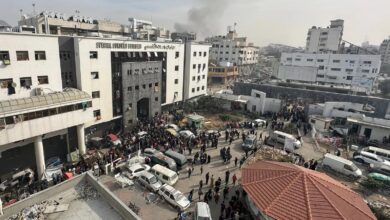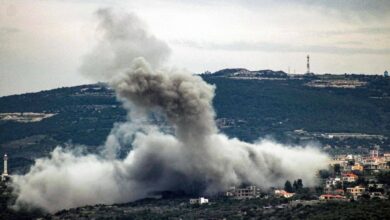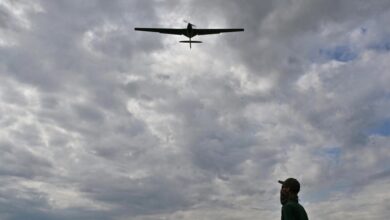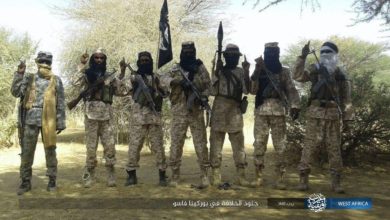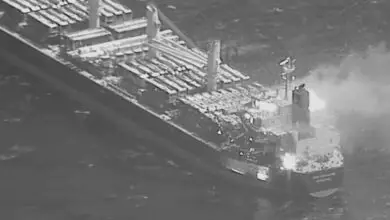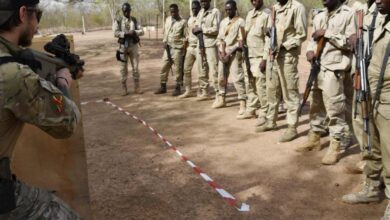Sixty-two people were killed this week in terrorist attacks and subsequent intercommunal clashes in north Burkina Faso, a minister has said.
“There were 62 deaths,” Simeon Sawadogo, minister for territorial administration, said of the violence between Sunday and Tuesday in Arbinda commune in Soum province in the Sahel region, near the Mali border.
“We have 32 dead because of the terrorists. We have 30 who died because of community conflicts, reprisals between Kouroumba, Peuls, Mossis etc,” Sawadogo said on Wednesday, April 3.
The militants “chased people and killed people,” Sawadogo said in his televised statement, adding that nine people were kidnapped.
Armed individuals on Sunday night stormed the village of Hamkan, seven km (four miles) from Arbinda, where they killed the village’s religious leader, his eldest son and his nephew, the minister said.
Infowakat reported that seven people were killed in that attack, while the Menastream risk consultancy placed the incident in Lele.
“Following the killing of Sheikh Werem, there were clashes between communities in Arbinda, which resulted in retaliation on both sides,” according to Sawadogo, describing a “deplorable situation.”
The minister said people from surrounding villages made their way to Arbinda after the violence.
“The security situation is such that no one is safe,” he said, insisting that extra safety measures had been put in place in the area.
“The intention of the terrorists is actually to create conflict between the different communities,” said Sawadogo, calling on people “not to fall into the trap by linking a community as the cause of our misfortune.”
One of the poorest countries in the world, Burkina Faso has been battling an escalating wave of attacks over the last three years, beginning in the North region near the border with Mali.
The former French colony lies in the heart of the sprawling, impoverished Sahel, on the southern rim of the Sahara.
Attacks have spread to the East region, near the border with Togo, Benin and Niger, and to a lesser extent, the west of the country.
Most attacks are attributed to the jihadist group Ansar ul Islam, which emerged near the Mali border in December 2016, and to the Support Group for Islam and Muslims (JNIM), which has sworn allegiance to Al-Qaeda in the Islamic Maghreb.
Both civilians and security forces have paid a heavy price, with the official death toll now standing at more than 300 since 2015, but the toll could be significantly higher.
According to an Armed Conflict Location & Event Data Project (ACLED) analysis, violence by armed groups in Burkina Faso has spiked, with 499 fatalities reported from 124 direct civilian targeting events between November 1 and March 23, representing a 7,000% year-on-year rise.
Additionally, conflict events involving armed groups and reported fatalities from armed clashes have both risen by more than 200%, according to the ACLED analysis.
On December 31, Burkina Faso declared a state of emergency in provinces within seven of the country’s 13 administrative regions after 10 gendarmes were killed near the border with Mali on December 27.
In the face of the increasing attacks, President Roch Marc Christian Kabore on January 9 appointed newly promoted Brigadier General Moise Miningou as armed forces chief.
Later in January, Prime Minister Paul Kaba Thieba resigned, along with his government, according to a statement released by Kabore. Christophe Dabire was later appointed as prime minister. New ministers were later appointed, including Moumina Chériff Sy as defense minister, and Ousséni Compaoré as security minister.
Last week, France’s armed forces chief General Francois Lecointre said the rising number of jihadist attacks in Burkina Faso was “a source of concern.”
“It indicates a spread of the jihadist movement” to the south from Mali, he said.
France was stepping up its cooperation with Burkina Faso and was looking at ways of helping it combat jihadist encroachment in frontier zones, he said.
France currently has around 4,500 personnel deployed to its Operation Barkhane in the Sahel, which has a mandate for counter-terrorism operations across the region.
Jihadists losing grip in Mali but peace will take time, French armed forces chief says
With reporting from AFP


